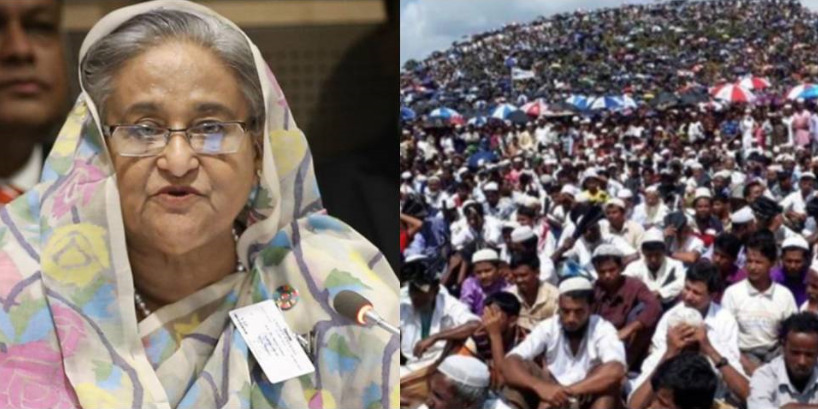Bangladesh had to bear the brunt of Myanmar’s crackdown on Rohingya Muslims as the community left by the heaps and fled to Bangladesh. Now, over a million Rohingya refugees reside in Bangladesh’s Cox Bazaar which is not only congested but also plagued with drug smuggling and nefarious activities thereby becoming a security concern for Bangladesh. With no end in sight to the refugee problem, Bangladesh is planning to move the Rohingya Muslims to the remote island of Bhasan Char which is located 60 km off the coast of Bangladesh.
The little known island of Bhasan Char which came into being less than 20 years ago as it emerged from the sea, is situated at less than 2 metres above sea level. The island is now at the centre of the Rohingya refugee crises as Bangladesh plans to relocate more than 100,000 Rohingya refugees on the remote island.
Escalating tensions amidst the rise in crime rate is behind Bangladesh’s determination to relocate a section of the refugees.
“The crisis is now becoming a regional threat. Besides increasing congestion and environmental degradation, it’s also challenging health and security in the area,” said Bangladesh Prime Minister Sheikh Hasina while addressing the UN General Assembly last year.
The Bangladesh government has built a new town at a cost of $350 million, however, only 306 refugees currently reside on the island as the island is perceived to be a prison by the refugees despite the swanky infrastructure. It is reported that Bangladesh is sending refugees to the island against their will with the UN Human Rights Council urging the country to not relocate the refugees against their will.
According to an Amnesty report, the handful of refugees living on the remote island have to make do with cramped and unhygienic living conditions, limited food and healthcare facilities. The report also claimed that there were cases of sexual harassment by the Navy and local labourers who also engage in extortion.
The Bangladesh government denies the allegations and points out how it is constructing two schools and hospitals along with a mosque and two community clinics.
However, it is not yet clear if the island has the necessary food, facilities and livelihood capabilities to support 100,000 Rohingya Refugees.
Bangladesh’s location which results in more than one cyclonic storm every year coupled with the island’s topography and the fact that it lies less than 2 metres above sea level, might result in excessive flooding and rainfall.
The BBC reports that one of the main reason for the Rohingyas to not shift to the island where there’s more space and better infrastructure is the proximity of Cox’s Bazaar with the Myanmar border as they believe that the camps are not permanent and as soon as the situation is resolved, they want to travel back to their respective hometowns in Myanmar.
While Bangladesh might be getting stick for its decision to relocate a section of the Rohingya Muslims to a remote island, the nation’s hands are also ties as the Cox’s Bazaar is emerging as a major security threat to Bangladesh. Instead of lecturing and tutoring on how Bangladesh should treat the Rohingya refugees, the UN would be better advised to find a solution to the refugee crisis.
